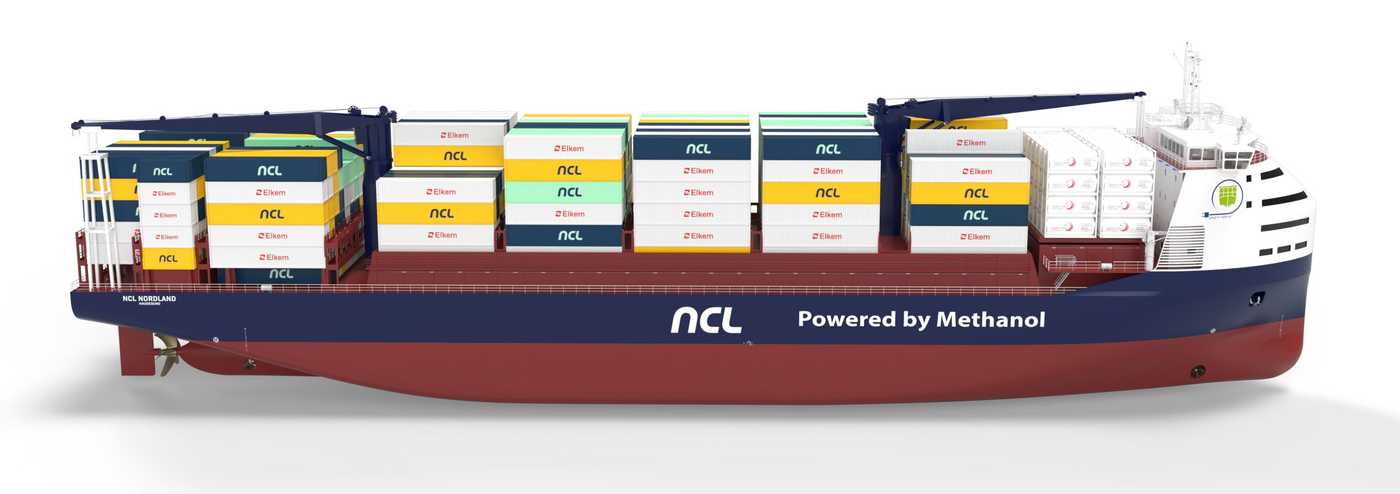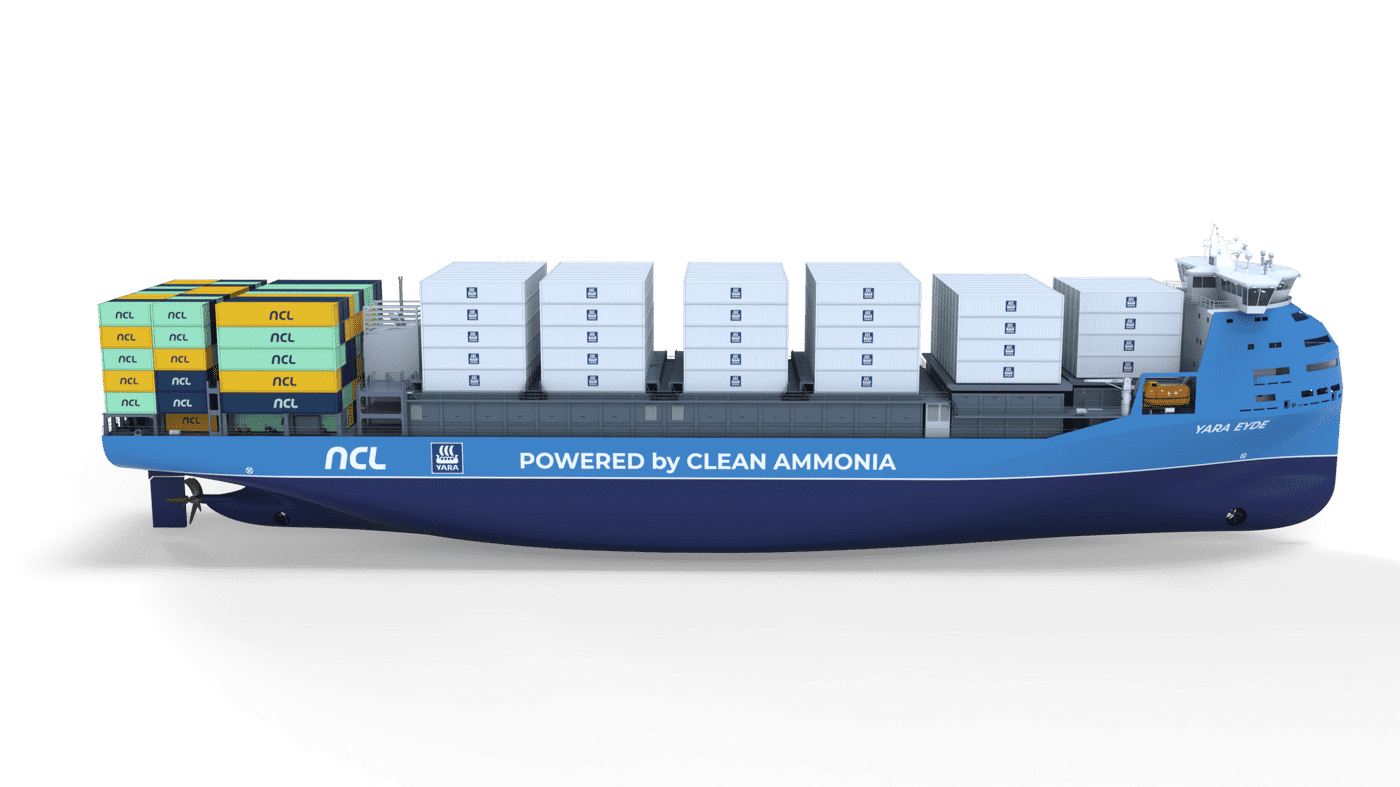SEA CHANGE
Everything has to get from one place to the next, and for our environment, sea freight is the best way of moving goods. But we think we can do better. It’s time for a change towards sustainable ship freight, a shift both in mindset and practice. It’s time for a sea change in our industry.
LATEST NEWS
Read the fresh press release regarding our ammonia powered container vessel here: Yara Press Release
MOVING GOODS GETS BETTER
We are currently replacing our fleet with methanol and ammonia powered ships. Our two methanol vessels are in service, and their size means they’ll replace three of our current, diesel-powered vessels. Our ammonia vessel is set to sail at end of 2026.
UN EMISSION GOALS 2050, REACHED IN 2025
As soon as our newbuilds are set into operation, we’re on our way to reach the UN’s emissions goals for 2050 already in 2025. We’re proud to spearhead this shift in the Norwegian market, and hope the rest of the industry follows. In addition, NCL is set to cut Co2 by 90% by 2030.
GREEN IS THE NEW DEFAULT
When there is a choice between using fossil fuels or more climate friendly fuels, the customer is given a choice. Ususally, this takes the form of opting in — for a little extra cost, you can choose the climate friendly way. We do the opposite. Green fuel will be the default choice, and if our customers want to go the slightly cheaper route, using diesel, they will have to explicitly state that. It’s time for a course correction: we think green should be the default choice.
OUR NEW SHIPS
NCL Vestland will be launched in September 2024. NCL Nordland in December 2024. Yara Eyde will be launched mid 2026.
WHY METHANOL?
In contrast with various other biofuels proposed to cut emissions, methanol is miscible in water, and is less hazardous to the environment, biodegrading quickly in the event of a spill. Methanol can be produced carbon neutral. We firmly believe that any solution shouldn’t create new problems, and that’s why we’ve opted for methanol as our sustainable fuel.
WHY AMMONIA?
Ammonia, which does not emit CO2 when burned, is expected to become a next-generation fuel as it contains properties ideally suited for the hydrogen economy. Ammonia does not require cooling to extreme temperatures, and has a higher energy density than liquid hydrogen, making it more efficient to transport and store. Furthermore, producing ammonia with renewable energy results in zero or minimal greenhouse gas emissions.

